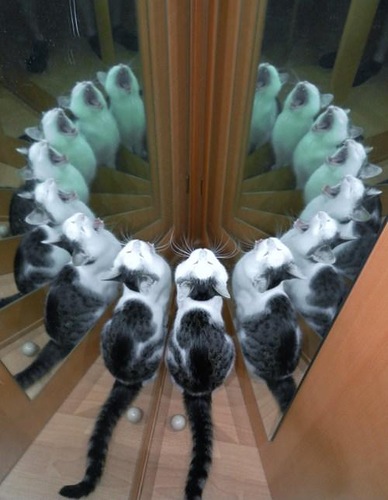
I think iTunes, Netflix, Steam, Spotify, YouTube, Amazon Video, Soundcloud, Facebook, and all other online media services should make their playcounts and download numbers public, with user IDs, even those of authority figures, so that artists and media creators can be sure they are getting paid (with no under-reporting of sales by media distributors), and maintain their safety and sanity while doing so, and so that regular people can link into the public consciousness without censorship of what the common man is being subjected to. Greed for money from these companies leads to ignorance of psychologically beneficial media in the public mindset. This is something that bittorrent trackers do right that everyone else gets wrong.
I suspect all these streaming services are just paid GUIs for freely-available torrents that leech from bittorrent users with good connection speeds and charge average joes for doing the searching. The monetary structure needs to be studied and the extortion of funds from users on paid internet connections for media that should be freely available should be broken up. No one wants to be extorted by the MPAA for $250, 000 a movie and 5 years in jail for using bittorrent, when you can set the preferences to only share 1 MB with other users per day, only when the application is active, which is about 5 seconds of a 1080p movie with sound. The torrent system is used to distribute media on behalf of legitimate channels, and some artists have even gone so far as to release their music and movies as pay-what-you-can torrent files. Why the superior system is being regulated at a higher class of vengeance than retailers with their papers in order, on wasteful discs or wasteful distribution methods like streaming is a mystery.
Even pornography sites have gotten smart with the bandwidth limited nature of modern computing and most now offer download files for the videos they distribute so that users can rewatch the videos without streaming and stressing the network. I guarantee you that anyone who downloads and watches these files is treated as a seeder or host for the media, ensuring that the media network maintains solvency.
These networks are all inherently connected. When buying songs on iTunes, for example, an option exists to share the media on Facebook. When shopping on Amazon for digital video, your browser will generate ads for you outside of the webpage you were shopping on, based on what you search for and download. Open internet isn’t all about “Internet Fast Lanes” and other forced-argument, wedge issues. The content and structuring of corporations and how they choose to do business on this shared resource we call internet matters.
Some of us put more into it than we get out of it.

Leave a Reply
You must be logged in to post a comment.